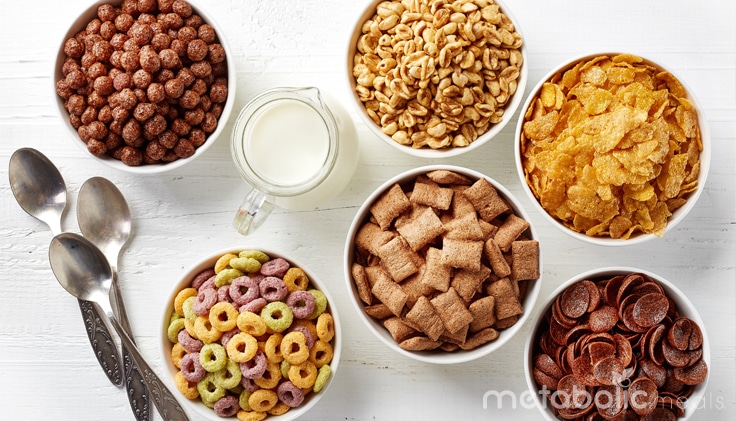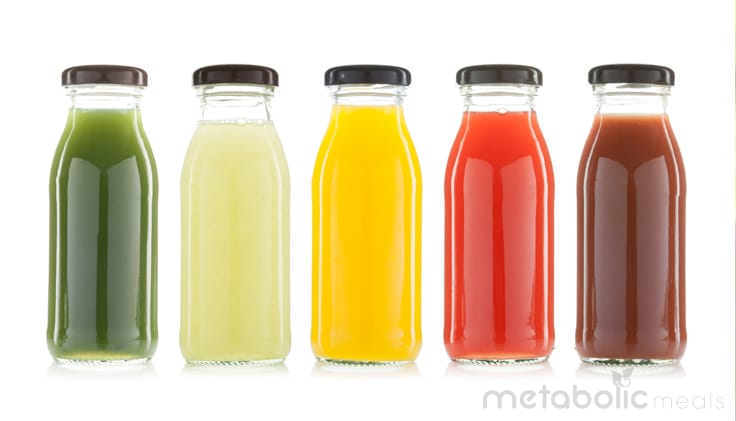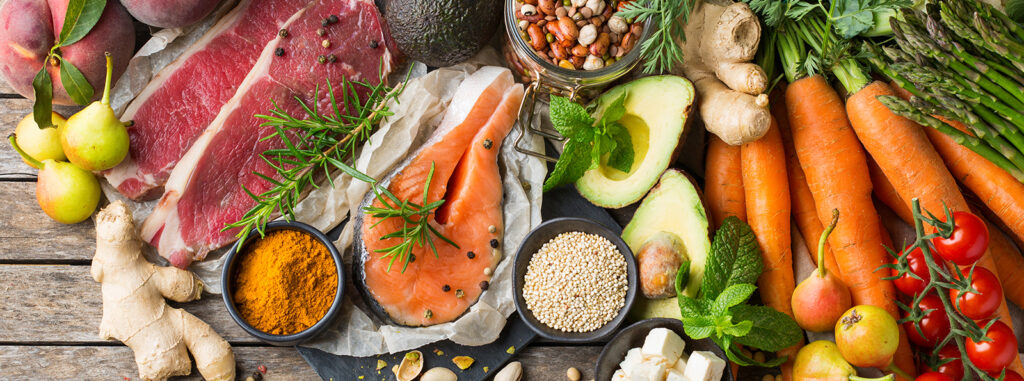The nutrition field is in the beginning of a new era. The latest research is making it harder to ignore that the industry has been wrong about saturated fat and cholesterol. Look at eggs, for example. For a long time, eggs were widely associated with high cholesterol and heart disease. Now, however, we know that eggs are unrelated to heart disease and dietary cholesterol itself isn’t to blame.
The problem of misinformation isn’t exclusive to eggs. The industry is learning that it’s been wrong about the foods making Americans unhealthy and overweight. Dietary fat has never been the enemy — it’s sugar. Sugar (and foods that raise blood sugar in the body too quickly) is what’s making people sick, fat, tired, and depressed.
Nutrition Misinformation’s Origins
But these myths about which foods are unhealthy didn’t emerge from nowhere. Marketing is largely to blame. Large food companies spend millions of dollars to convince consumers that the products they sell are necessary for people’s health. And organizations like the American Dietetic Association, which stands to make millions in sponsorship dollars, keep sending out the message that a healthy diet should be founded on “healthy” complex carbohydrates.
Breakfast cereals like Lucky Charms, for example, are marketed as a healthy choice because they are made with whole grains, but with only two grams of fiber per serving, low-quality fortified vitamins, and an extremely high glycemic load, this type of marketing is misleading.
False studies that accompany these marketing ploys are also responsible. In 2015, the relationship between scientists studying nutrition and the food industry was revealed. The American Society for Nutrition received money from big names like PepsiCo and Nestlé not only to sponsor events, but also to conduct research that shows what the brands want the public to see.
The Problem With “Healthy” Carbs
The consequences of this misinformation could be dire. Consumers who buy into the myth that a diet should be based in carbs risk developing insulin resistance, and for the average American who doesn’t get enough activity to handle that level of carb intake, Type 2 diabetes is likely.
In addition, obesity rates have risen more quickly between 1970 and the present than any point in history. Many experts, myself included, credit this sharp uptick to the rise of carbohydrates and the restriction of dietary fats. This type of eating can cause insulin resistance, hypothyroid, and lowered testosterone levels, and hormonal imbalances lead to weight gain and many chronic diseases.
And the relationship between increased body fat levels and cancer is becoming clearer. There is especially convincing evidence of the relationship between obesity and esophageal, pancreatic, colon, endometrial, kidney, and breast cancers. Dr. Graham Colditz, who teaches medicine and surgery at Washington University in St. Louis, claims that smoking is the only cancer-causing environmental factor that comes close to obesity.
“Healthy” Foods That Are Unhealthy
While the nutrition industry is gaining a clearer picture of which foods are actually healthy, outdated myths persist. Here are seven foods many people still believe to be healthy that might actually be making you sick:
1. Cereal

Although it was once considered a healthy replacement for eggs in the morning, cereal is not an ideal way to start the day. Almost every breakfast cereal, even the ones that appear healthy, carries a high glycemic load and is fortified with low-quality vitamins and minerals. They also lack the protein your body requires in the morning to maintain your immune system and detoxification. A high-carb breakfast can also impair cognitive function and make you reach for high-sugar snacks to normalize your blood sugar.
2. Yogurt

Most yogurts are high in sugar — or worse, high fructose corn syrup. They get marketed as healthy because they contain probiotics, but the manufacturing process causes most active cultures to die before they reach your spoon. If you have access to full-fat Greek yogurt made from the milk of grass-fed cows, consider yourself lucky. This is what yogurt is meant to be and is actually quite healthy.
3. Granola Bars
These bars, which are basically cereal in bar form, have been marketed as healthy for years. Ironically, most of them have as much sugar, ounce for ounce, as a candy bar. Don’t let the occasional oat or nut mislead you; granola bars are mainly sugar and highly processed grains.
4. Fruit Juice

Fruit is good for you, so the juice is, too, right? Wrong. Many so-called “juice drinks” only contain 10-15 percent juice and are sweetened with sugar. Even 100 percent fruit juice has a sugar count almost as high as soda’s and is missing many of the valuable nutrients found in whole fruit.
5. Agave
The praise agave received for having a low glycemic ranking made many people quickly label it a safe alternative to sugar, but further research has told a different story. According to Dr. Jonny Bowden, Ph.D., C.N.S., “Agave syrup (nectar) is basically high fructose corn syrup masquerading as a health food.”
Agave’s fructose content is the highest of any other sweetener out there, which is known to be the most dangerous aspect of these sweeteners. Fructose leads to insulin resistance and elevates triglycerides (which can lead to heart disease). Fructose also increases the fat around a person’s middle, increasing the risk of heart disease, diabetes, and metabolic syndrome.
6. Canola Oil
Canola supporters believe it to be one of the healthier oils because it contains omega-3s, is low in saturated fats, and is a great source of oleic acid. While these attributes are true at the surface level, there’s more to canola oil’s story.
It’s genetically modified, backed by the Canadian government, cheap to manufacture, and included in many packaged and processed foods. In the 1970s, it was created as a natural oil, but in 1995, Monsanto made a genetically modified version, and a whopping 87 percent of U.S.-grown canola is genetically modified.
7. Soy

The soy industry has been claiming for years that its soy-based imitation meat products are nutritious simply because they’re vegetarian. But meat is only unhealthy when it’s made from an animal raised on an unnatural diet in poor living conditions.
The Swiss Health Service found in 1992 that a soy milk intake of two cups a day contains as much estrogen as a birth control pill, and infants that consume soy-based formula get the equivalent of five birth control pills. Soy also contains an overdose of isoflavones, with 24 milligrams per serving. The Ishizuki Clinic in Japan discovered that ingesting 35 milligrams of isoflavones a day (there are about 45 milligrams in a glass of soy milk) led to thyroid suppression in previously healthy people after three months.
While the nutrition industry is quickly clearing up the misinformation consumers have been hearing for decades, there is still progress to be made. These seven foods are widely believed to be good for you, but look past those myths to ensure you’re eating a diet that’s actually keeping you healthy.






